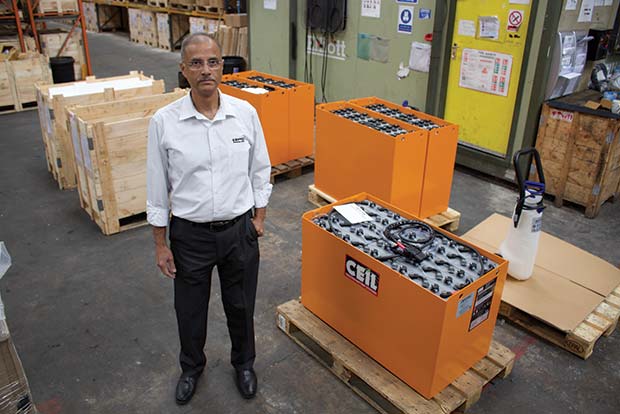Lead-acid batteries have been around since the mid 1800s and the technology is constantly being honed and refined. As the more environmentally friendly and cleaner alternative to IC engine forklift trucks, electric forklifts rely on cost-effective, efficient and practical batteries and their associated chargers.

That’s what makes lead-acid the battery of choice for forklift trucks the world over, but there is competition.
The benefits of its much younger cousin, lithium-ion, are often touted, and on paper they’re hard to deny. High energy density, quick recharging and low self-discharge rates (i.e. the rate at which batteries run down when left to their own devices) are certainly appealing traits so it’s understandable that some are viewing lithium-ion as the ideal forklift battery solution.
But in the real world, these benefits start to lose some of their impact. Alas, the cost-to-benefit ratio just doesn’t add up – the cost of replacing a lead-acid battery in an existing forklift with a lithium-ion equivalent (and also replacing the associated charger) could set the buyer back by up to four times the amount needed to just replace the present lead-acid battery like-forlike.
That’s a cost that most businesses simply aren’t able to entertain and puts the focus on taking advantage of the more pragmatic lead-acid options, which are improving all the time.
There’s also the issue of recyclability – there’s no denying it’s cheaper and easier to recycle a lead-acid battery than a lithium-ion one and we all know the importance of recycling when it comes to industrial battery use.
So while we’re all for looking forward when it comes to battery technology, we can see the future of forklifts being electric, and that electricity coming from costeffective and recyclable lead-acid batteries.
By Amit Ghosal, Espex Batteries’ Chief Executive.
ESPEX BATTERIES LTD




Comments are closed.